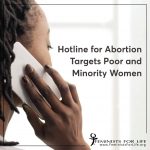“In short, in many cases of abortion, there is a woman in a desperate situation who feels she has no other choice but to kill her child, and this problem is not simply an African one.” So comments Obianuju Ekeocha, pro-life educator, activist, and author of Target Africa: Ideological Neocolonialism in the Twenty-First Century.
It seems no matter the country or continent, the issues facing women in regard to abortion are strikingly similar. I was honored to speak with Ms. Ekeocha (Uju), to further explore our shared concerns for women. In Uju’s book, she explains that the colonization of Africa, while seemingly in the past, is not really over. There are cultural perceptions and trademarks from their colonizers that linger, as well as the idea that Africa is the continent of “people in need.”
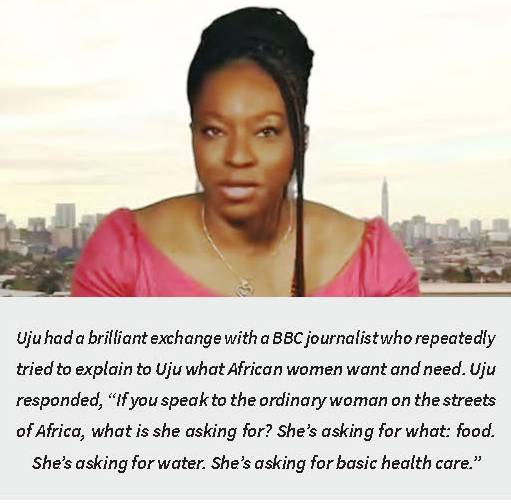
She writes in Target Africa, “…the Western media rarely shows any good news out of Africa. Instead they show every parameter of failure: low life expectancy, much poverty, poor healthcare quality, high maternal and infant mortality, low food security, little government transparency, and so on…. In many ways, it seems African nations have gone into a mental condition of ‘protected dependency’ and have thereby put themselves at risk of becoming once again protectorate states of Western stakeholders. This is the path to the past, and the path to perdition.”
So why should all this matter to us as pro-life feminists? Because one of the highest priorities the new “colonizers” want to bring to Africa is legalized abortion cloaked as “women’s empowerment.”
A failed argument we know all too well.
Uju and I started our conversation with this perception.
Joyce: I know you are right about the way Americans see Africa, but I wanted to know if Africans knew that here in the U.S., we are still a country divided on the issue of abortion and that pro-life feminism is alive and growing?
Uju: Everywhere you go in Africa, what you learn about the West is whatever the face of international media is showing—CNN and BBC. And we know they only show one slice of reality. I used to think that everything I saw was whatever was on TV. In the same way, when Americans think of Africa, certain images come to mind, but that may not be the reality everywhere.
Non-Western community values are still kept in modern rural areas, but in our urban areas, the West is associated with a “better life.” Yet in these areas, they still want to be in line with our values. Their minds are not completely made up. So many have no idea that there are those who oppose abortion in the U.S., let alone from a feminist perspective. Sometimes, I want to draw the curtain open and tell them, “Do you know that there are pro-life activists and heroes in the U.S.?”
Joyce: Why do you think the West is so intent on bringing abortion to Africa?
Uju: There isn’t one reason why; I think there is a collection of issues and the first one is that it affirms second wave feminism. Abortion, in second wave feminism, is seen as a value, a good thing, so it becomes a problem when another country sees it as a killing, and not as women’s empowerment, so they want to spread that message. Some of the other issues include population concerns that certain environmentalists believe.
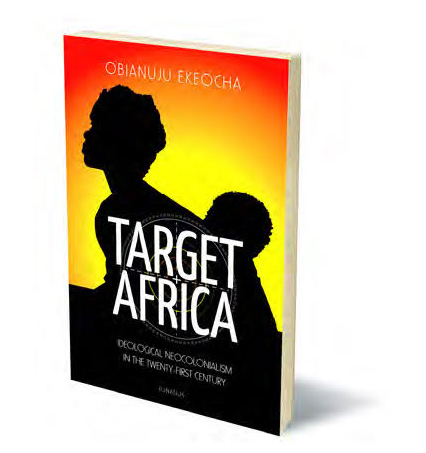
Joyce: Oftentimes, here in the U.S., as well as abroad, abortion is seen as a solution to poverty, or at least something that must be offered to the poor. Yet, when a woman walks into an abortion clinic, she walks in with one set of problems, and walks out with the same. If she walks in as someone who lives in poverty, she walks out in poverty as well, just with one fewer child.
Uju: Yes! This is very true. It is harder to raise a child when you are poor, and when you come to a place under the lead weight of poverty, of course it is very difficult. But even in poverty here, even a child is recognized as a gift. That is the difference.
A baby is a sign of hope, a new future.
When the abortion lobby enters, they are bringing a new version of life, to use abortion as a means to “buy” a better life for your other child[ren]. You must sacrifice this one for a better life for the other.
Joyce: Another common belief is that abortion is simply part of the spectrum of reproductive health. Yet, how would you define reproductive health and justice?
Uju: Everything relating to a woman’s ability to reproduce. The female body is so complex and needs so much care from the point of medicine. We even have an entire field of medicine dedicated to this process, so we must appreciate how important and complex the female body is!
But it is now being used to mean the opposite because now we are reversing one part of the process.
Stop branding abortion as health care. It really has nothing to do with a woman’s health, and in some cases is even detrimental to her health.
Joyce: Some extend this argument to say that abortion can improve maternal health outcomes, that abortion is safer than pregnancy and childbirth. What is the maternal mortality rate in Africa comparatively speaking?
Uju: Our health care systems are problematic, and the issues are so complex. There is not one easy fix. The situation is dire, so maternal health care is really only one aspect of it. There are so many issues that need to be addressed, and improving one or many of these could improve all outcomes. Abortion has not done what it was promised to us that it would do.
Abortion-on-demand is legal in four countries. South Africa began it 21 years ago. It’s been 21 years, so whatever you promised should have happened.
However, in Egypt, abortion is restricted, and the maternal mortality rates are the same in both countries.
Half of abortions are done illegally in South Africa even though they are free and legal.
Joyce: Wow. So a woman for any reason, can get a free, legal abortion in South Africa, but still chooses to get one from an illegal, unsafe provider?
Uju: Yes. There are billboards everywhere advertising abortion, but there is still much shame, because culturally it isn’t really accepted.
Joyce: For those countries that have allowed abortion, is post-abortion care offered?
Uju: Post-abortion care is really just the entry point. International Planned Parenthood will say, “We are here to offer help if a backstreet abortion goes bad.” But in reality, it’s a full or completed abortion that is done by IPP. But in countries where it is already legal, no one talks about post-abortion care.
Joyce: Recently, there has been a growing movement in the U.S. to “celebrate” abortions, and in some cases, even calling them “self-care.”
Uju: My first question is always, “Who is funding these billboards and messages? What is their agenda?”
What I want to say is you are so sensitive about racial injustice, what has been done to you, but cannot see that abortion is the killing of a future generation. It’s self-care to self-destruct your future?
This is where the African-Americans are now? Africans would be horrified to see the reality of this and saddened.
Abortion is the end of a road soaked with tears. Our work is to block that road.
Most women get to the abortion clinic due to an excess of needs and a lack of support.
When we join together in fellowship, we can solve women’s crises. The ones not in crisis can offer suggestions, resources, friendships, and the consolation that is needed!
This is why I fight.
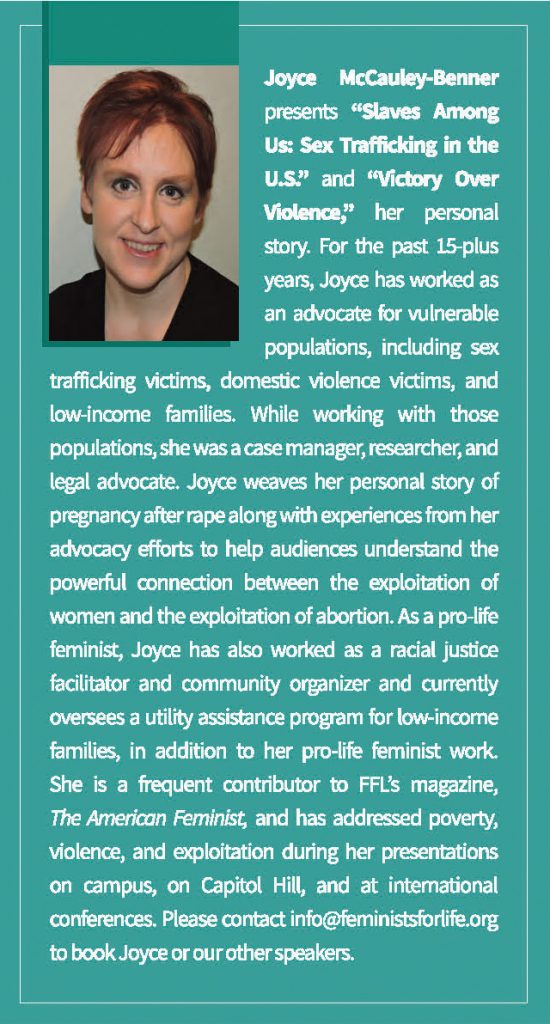
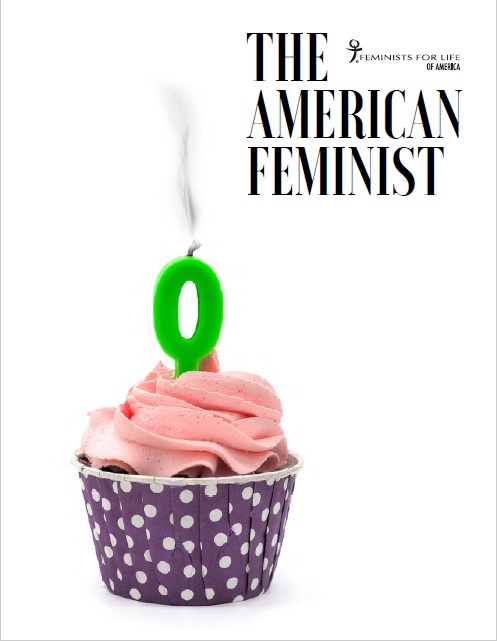
Read more in Abortion: Nothing to Celebrate. You can purchase your copy here.
What else can you find in Abortion: Nothing to Celebrate?
- Introduction- Serrin M. Foster
- Introducing Black Girls for Life- Tatiana Federoff
- Ctrl Alt Delete- Julie Durbin
- They Say; FFL Answers- Madeline Davin
- Target Africa- Joyce McCauley-Benner
- We Remember: Jamie Lee Morales- Damian J. Geminder





